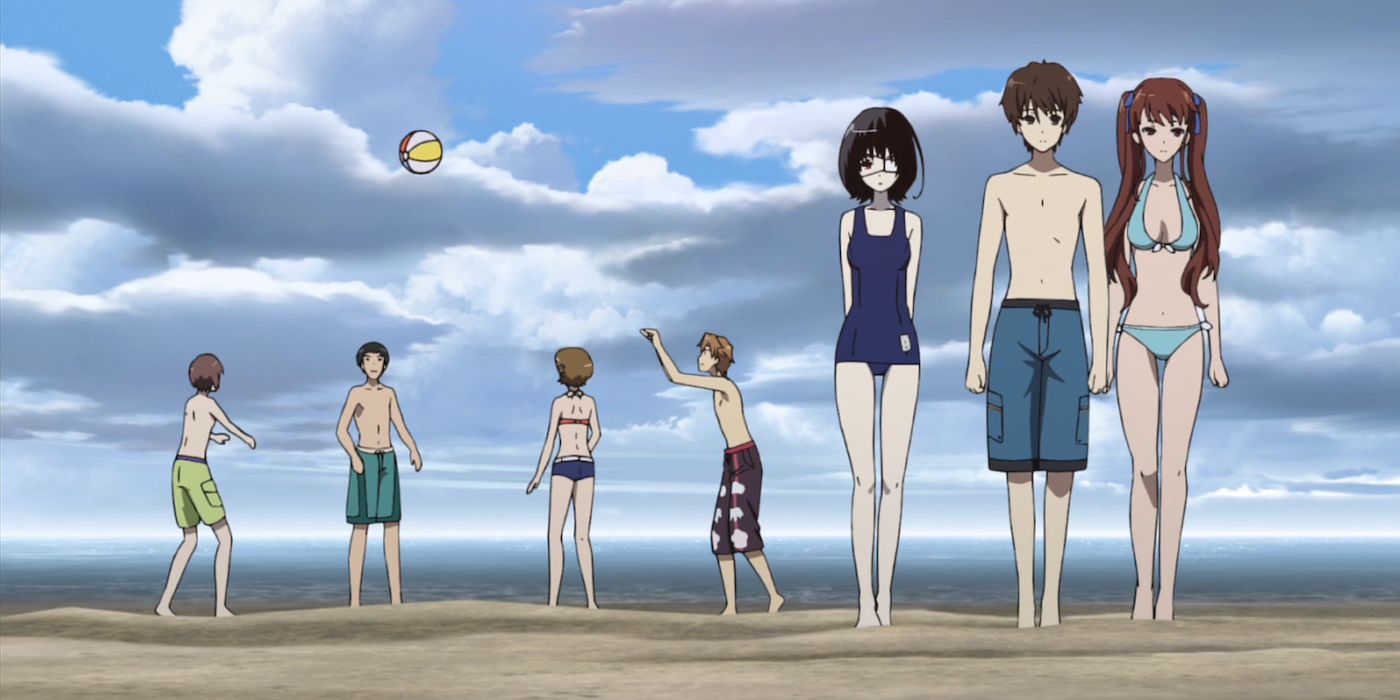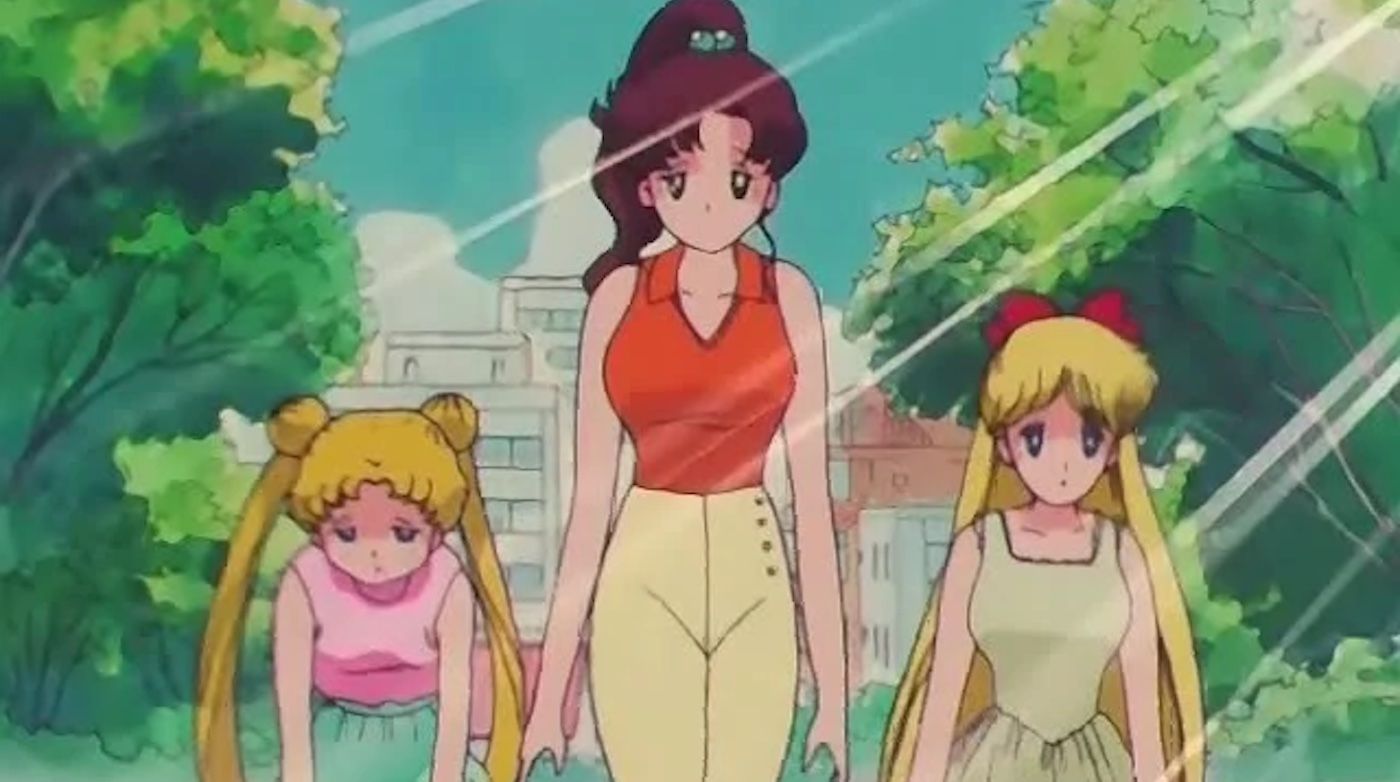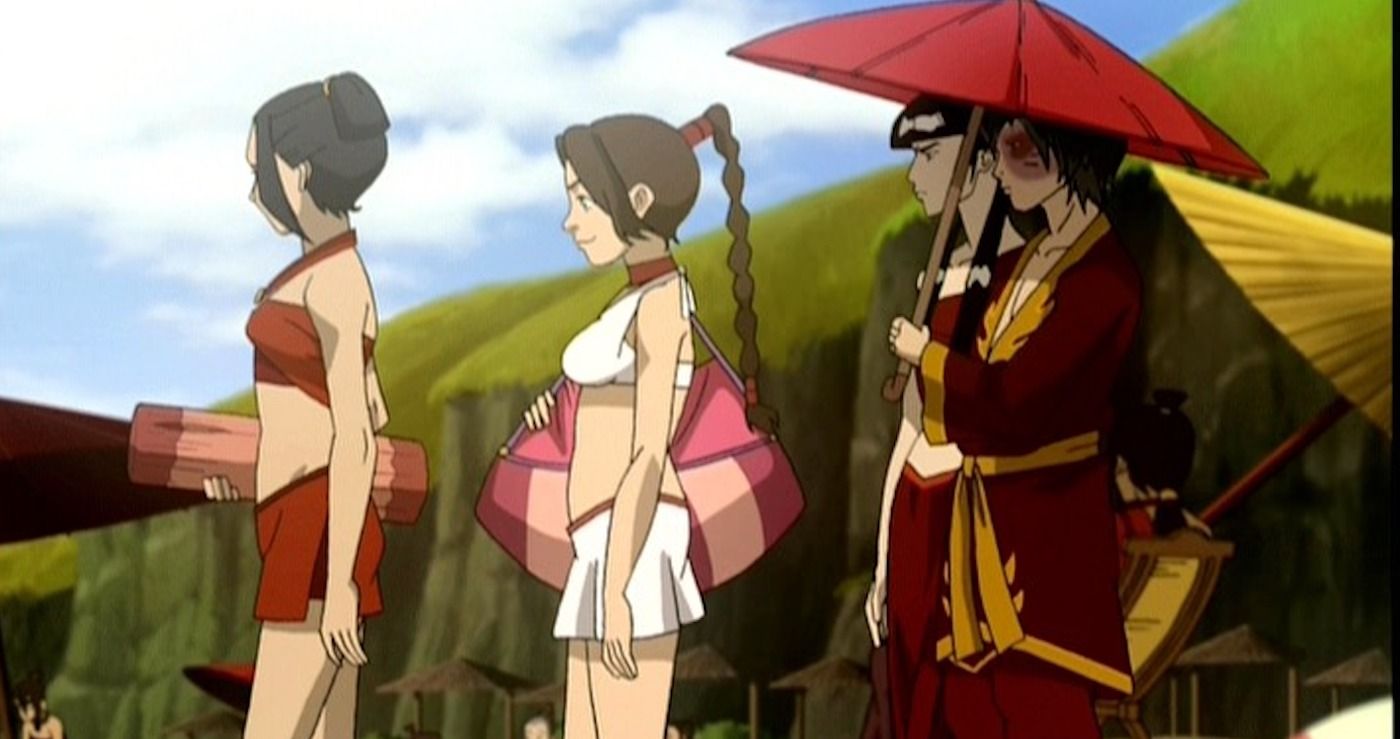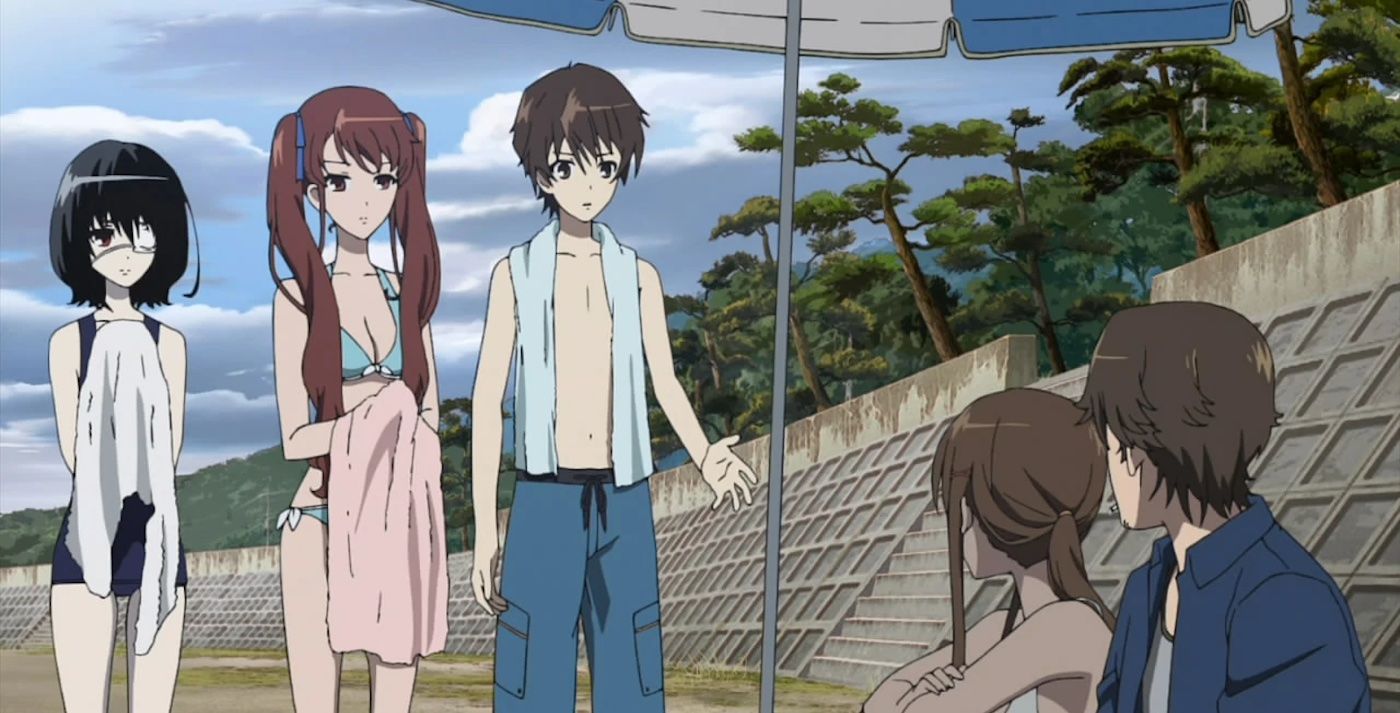There is nothing quite like the feeling of taking a break from routine, going to the beach, and just relaxing. In the rush of our day-to-day lives, a trip to the beach feels almost like an interlude, a break in which we get to recharge, reflect on ourselves and our lives, and, why not, have a little fun doing silly stuff like sandcastles and water fights. So much so, that the idea of the beach break even made its way into pop culture, with beach episodes becoming a recurring trope in many series and sitcoms, from live-action ones, such as Friends, to the animated genre of anime.
In fact, when talking about anime, the beach episode is an almost mandatory stop for every show that wants to take itself seriously - even though the trope itself might not. Just like in real life, one of the best aspects of the beach episode is the fact that it embraces wholly the quirkiness and silliness of the situation. Going to the beach is not usual for most of us, just as it isn't for most anime characters, posing then an opportunity for them to meet completely different sides of themselves and their friends. To name a few, there are classic beach episodes in iconic animes like Bleach, One Piece, Pokémon and even Hamtaro.
But what exactly is the deal with this kind of episode, really? Are they there to fill the spaces between heavy arcs in the anime? Is their only purpose to show people in bathing suits as a way to provide a bit of weird fan service? Well, that might be the case, indeed, but beach episodes are at their best when working as a sort of bottle episode - those focused on characterization and often contained to one (or as few as possible) settings. A lot of character development and world building can happen in the midst of all the splashy fun, and that's mostly what this trope is all about - that, and their potential for spawning funny memes, of course.
The earliest examples of beach episodes weren't really about that, though, and used to function more in a filler fashion. Take Sailor Moon R's "The Beach, The Island and a Vacation: The Guardians' Break" as an example. As a standalone episode, it has no connection with the main storyline and focuses on the Sailors helping the dinosaurs of a volcanic island after Chibi-Usa wanders off and makes friends with a baby plesiosaur. Quirky? Yes. Silly in its premise? Most definitely. But still, something nice to watch in the middle of all the intense fighting and romance.
More than fillers, though, beach episodes nowadays are often used for character development as bottle episodes. With Avatar: The Last Airbender, the trope worked so perfectly, "The Beach" became one of its most iconic episodes (yes, there is the whole debate over Avatar not being an anime, but, for all intents and purposes here, it is). The story sees Zuko, Azula, Mai, and Ty Lee sent to Ember Island by Fire Lord Ozai. While they're reluctant at first, the not-so-merry bunch decides to give it a chance after being greeted by twin sisters Lo and Li who insist that "the beach has a special way of smoothing even the most jagged edges" and helping them to better understand themselves. By the end, that's exactly what happens, when all four of them reminisce about themselves together in the old vacation house of the Fire Nation's Royal Family.
Another example of how this trope can be used for world-building comes in Evangelion 2.22 - You Can (Not) Advance. The second entry in the Rebuild of Evangelion series of animated films, its structure is mostly episodic, and there is a sequence set in the aquarium of Tokyo 3 that doubles as a variation of the beach segment. In this sequence, Ryoji Kaji takes the EVA pilots and their classmates to the aquarium where they get to see marine life in all its long-lost glory. After main character Shinji Ikari bonds with his friends, Kaji explains to him that, after the Second Impact took place, the oceans were not fit to sustain life anymore, with the aquarium now working as a cleaning station to preserve sea animals and keep them from extinction. That is one of the rare moments of peace and fun in Shinji's life up to that point and helps him better understand what he is fighting for when getting in an EVA. This sequence is also shown in the Neon Genesis Evangelion manga adaptation, although it's not featured in the original anime.
Now, going to the beach involves, well, actually going physically to a different place. That, by itself, already involves a refreshing change of setting for most stories, bringing possibilities that would otherwise not have been available to them. A very common premise is the dystopian future, in which the whole world works in a different beat than our reality, and often presents a very limited space for characters to live. Two great examples of how a beach episode can break an anime's world wide open and go beyond its usual settings are Attack on Titan and Darling in the Franxx. In both of them, the main characters grow up in secluded societies, something that is forced upon them due to the dangers of the outside world (the Titans and the Klaxosaurs, respectively). Their beach episodes, then, offer a glimpse of how the world used to be before whatever catastrophe happened for things to change to what they currently are.
One of the most fun episodes of the sort recently, though, was one that subverted the trope in an almost gratuitous way: "Hair Stand," Another's eighth episode. A lot of the most common elements of a regular beach episode are there - people showing a lot of skin, pranks, a little romance, beach games, and all that - but so is the class curse the characters thought they could cheat even if just for a while. Another is a horror anime, so things cannot just end well. By the end, after one of them perished chopped up by a motorboat, everyone is reminded that they are not safe anywhere.
Regardless of the cringe-y aspect of it, the beach episode is a beloved trope and has itself become a meme within the anime community. Most series have them, and they are way more than just a weird way of offering fan service to weird fans. Their value lies in the effect they have in the characters with the change of setting and pace from the main storyline. There are countless other examples of good beach episodes in other animes, and they will keep coming as long as there are people needing a break to relax and watch something silly. Life's a beach, after all.




